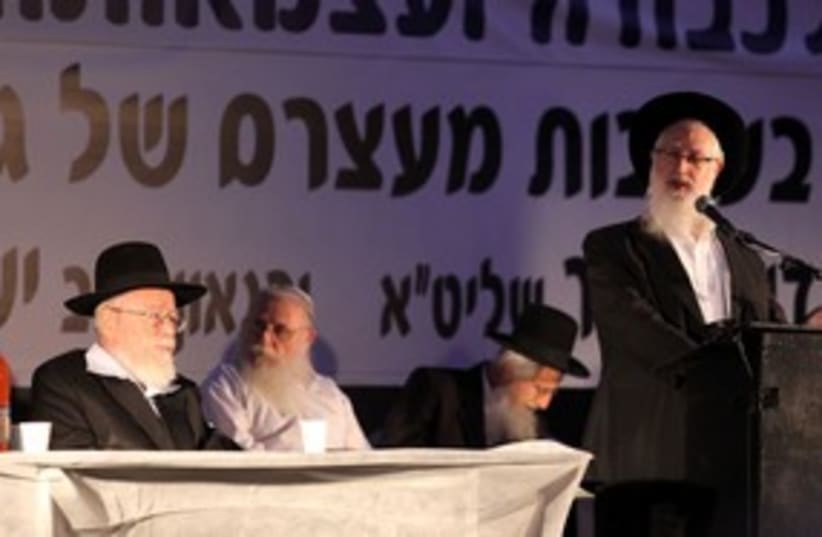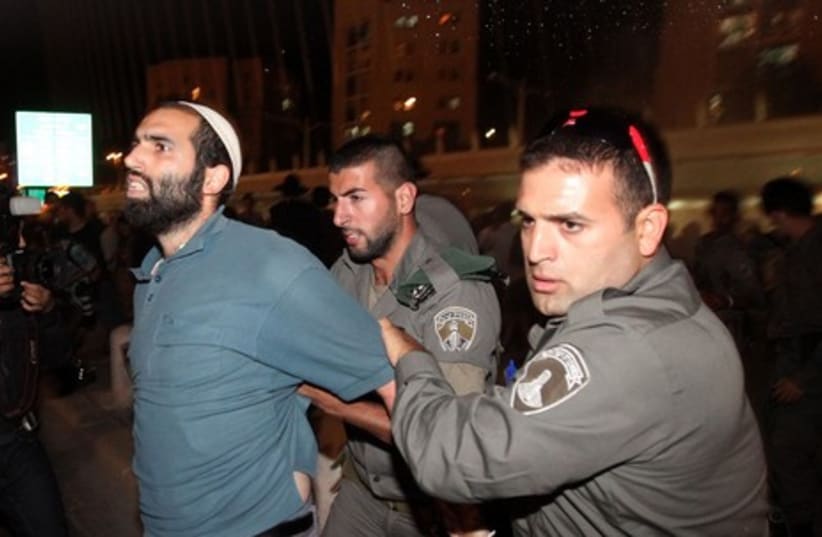
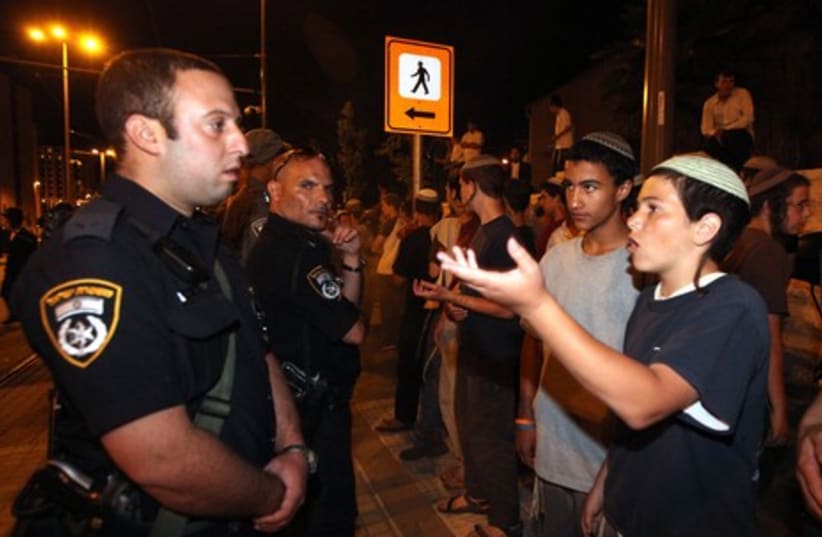
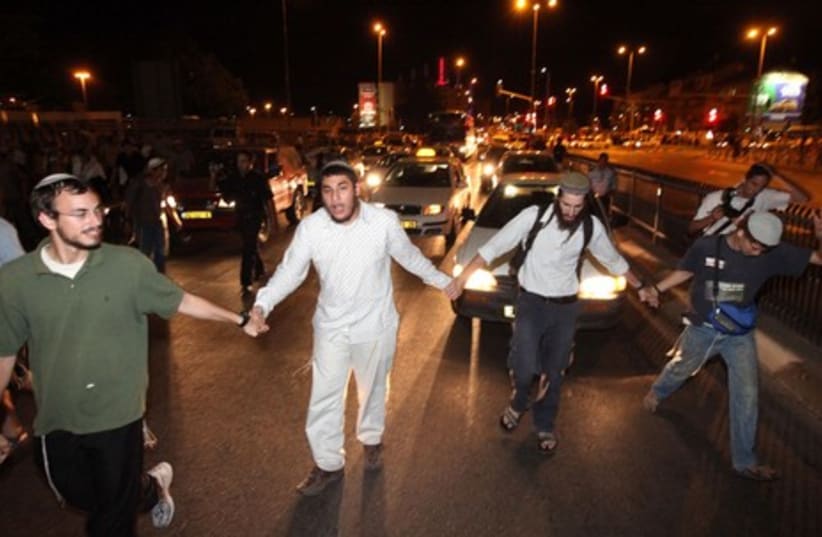
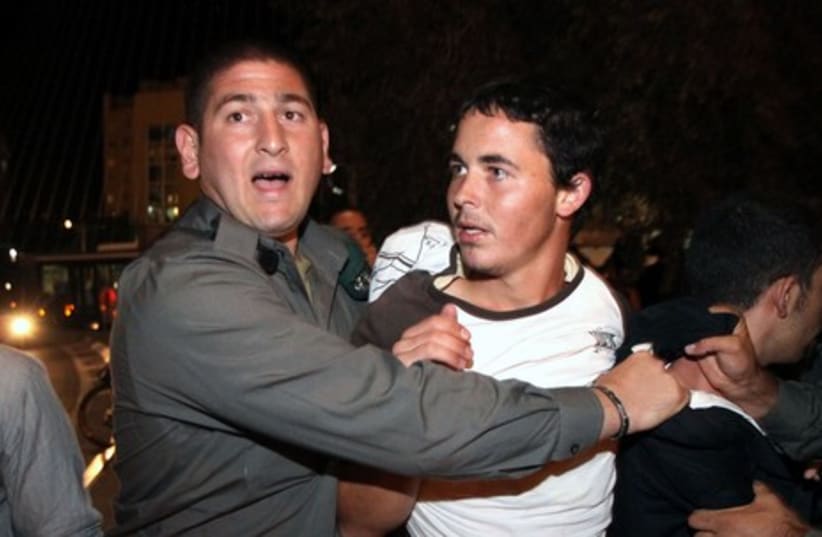
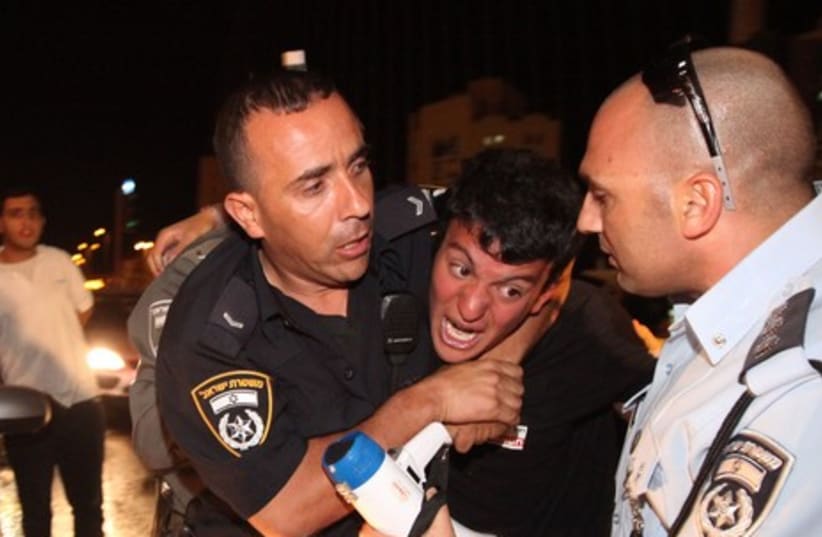
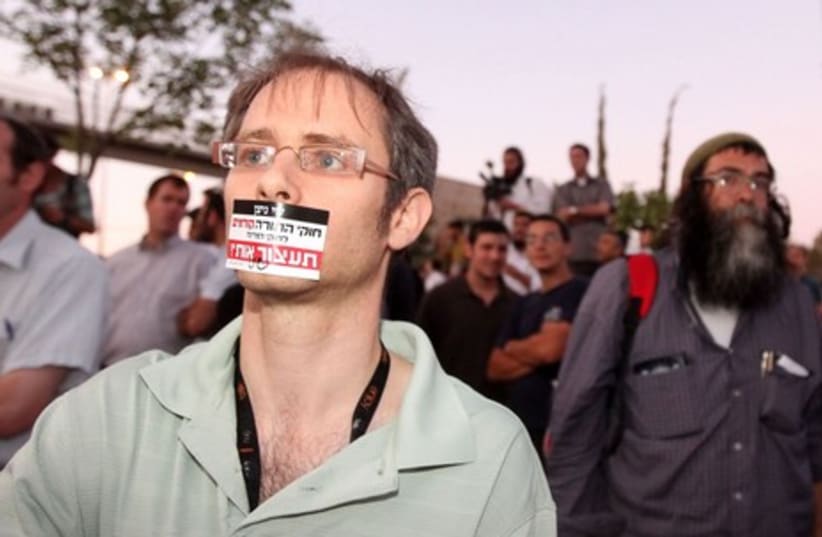
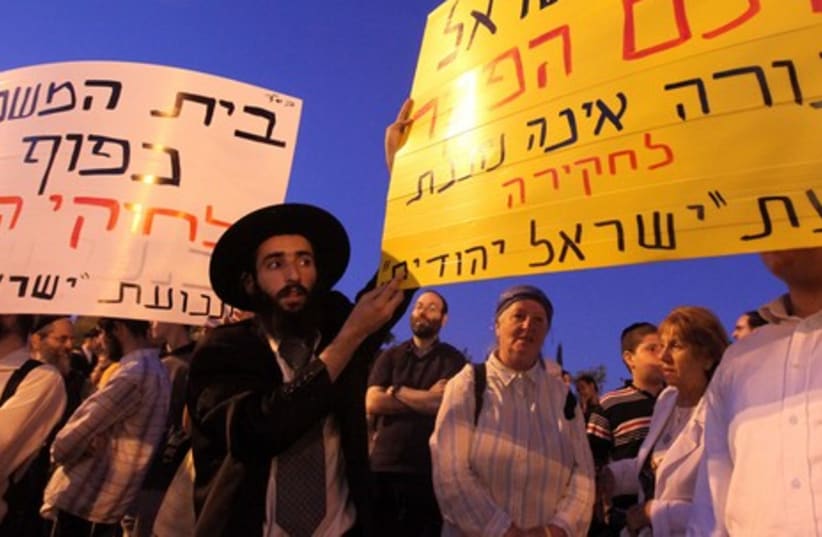
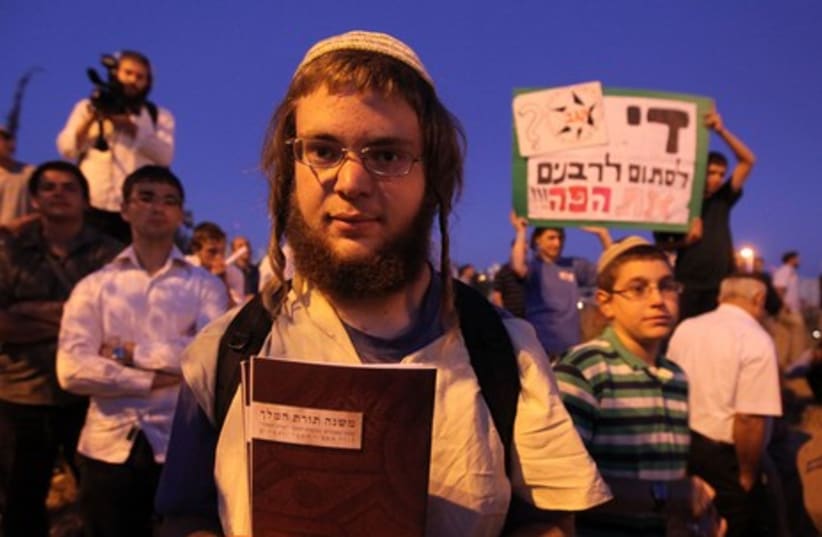
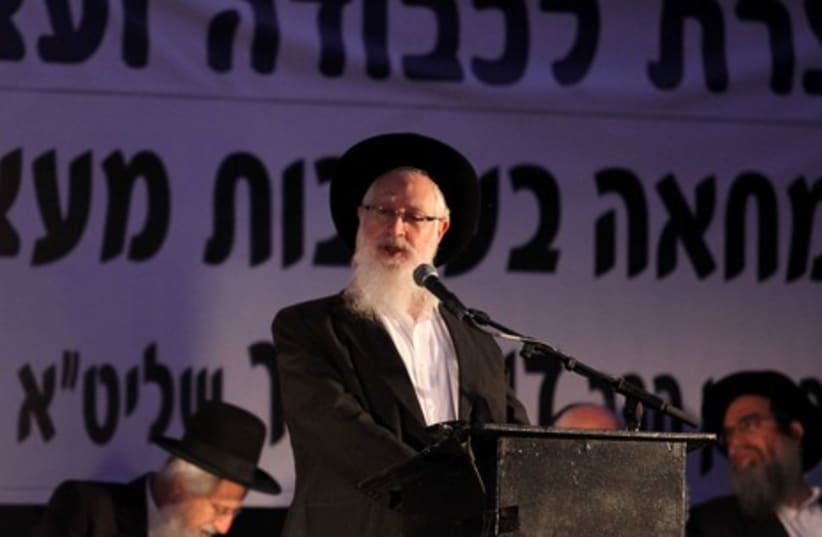

The demonstration itself passed peacefully, but after it ended some of the participants tried to block the nearby Sderot Herzl. Police used force and water cannons to disperse the demonstrators, and arrested four adults and a minor.Lior stressed the importance of showing support for Torah and its independence, and thanked “those who indirectly contributed by awakening the public, to make it aware of the dignity of Torah.“Rabbis should express their opinion and not fear someone won’t like it,” he said.RELATED:Hundreds protest Rabbi Yosef arrest in Jerusalem PM on Rabbi Yosef detainment: 'No one is above the law' Yosef, who was detained on Sunday for brief questioning, said the Talmudic principle of “the law of the state is law” (dina demalchuta dina) only applies when the law treats everyone equally.“We religious people always tried to keep the balance [between Torah and the law]. In recent years there are attempts to destroy this bridge and split us into two peoples. We are one people. Secular people also like the tradition, observe holidays. Secular people are good. There are isolated people trying to destroy this bridge, and that is a shame,” Yosef said.Rabbi Haim Druckman, head of the Bnei Akiva Yeshivot and one of the senior leaders of national-religious Jewry, said the claim that everyone is equal before the law is false, since intellectuals who expressed themselves in a way that could be perceived as incitement against settlers or the Right were not investigated.“This is a deliberate attack against rabbis. Rabbis have the freedom to express their opinion on Torah, even if it is disputed.“We call on those who can put order into the State Attorney’s Office to do so,” said Druckman, who also heads the State Conversion Authority under the auspices of the Prime Minister’s Office.Rabbi Zalman Melamed, head of the Beit El Yeshiva, said, “We all agree that Israel is a country of law, and everyone is equal before it. We came here to demand that the State Attorney’s Office observe the law.”Melamed predicted that “the day when committed Torah scholars will be part of the High Court and the State Attorney’s Office is near.“I came here to protest against the system, the fact that freedom of expression is only afforded to one side of the political map,” said Pinchas, 50, a Jerusalem resident.As for the content of the book at issue, Pinchas said Torat Hamelech “contains halachic issues that can be taken out of context. There is no appeal to take Arabs and throw them away in the book. If there was, I’d be one of those protesting against it. You also have to understand what a rabbinic endorsement for a book is – it’s not as if the rabbi actually reads every letter of it.“There are people who are trying to heat things up,” he continued, in a reference to the State Attorney’s Office.“Things are getting worse with how we, the Right, are being treated, probably because religion is becoming more present in the public, and religious people are taking more and more senior public positions.”But despite the general feeling of discontent on the Right that Pinchas described, not many chose to attend the protest. Organizers said ahead of the event that more than 100 buses had been chartered, but the meager turnout didn’t reflect even a quarter of that.Two young Sephardi haredi yeshiva students stood out in the largely national-religious crowd. “We came out of curiosity, and to respect Rabbi Yosef,” the 19-year-olds who wished to remain anonymous said. Asked why more supporters like themselves didn’t arrive, they explained that Yosef “is too close to the national-religious and rightwing public.”Three young haredi men from the anti-Zionist Eda Haredit organization watched in mild amusement as the small crowd dispersed at the end of the demonstration. “They are confused,” said one of them who identified himself as Shimon. “They want to keep the laws of the state, as well as the Torah. For us, we only keep the laws of the state because the Torah tells us to.“They really don't know how to organize demonstrations,” Shimon continued. “Remember how many people took to the streets during the Emmanuel affair [over school segregation in June 2010]? Over one hundred thousand. Look at this,” he said. “They don’t know what they want from themselves.”Melanie Lidman contributed to this report.
